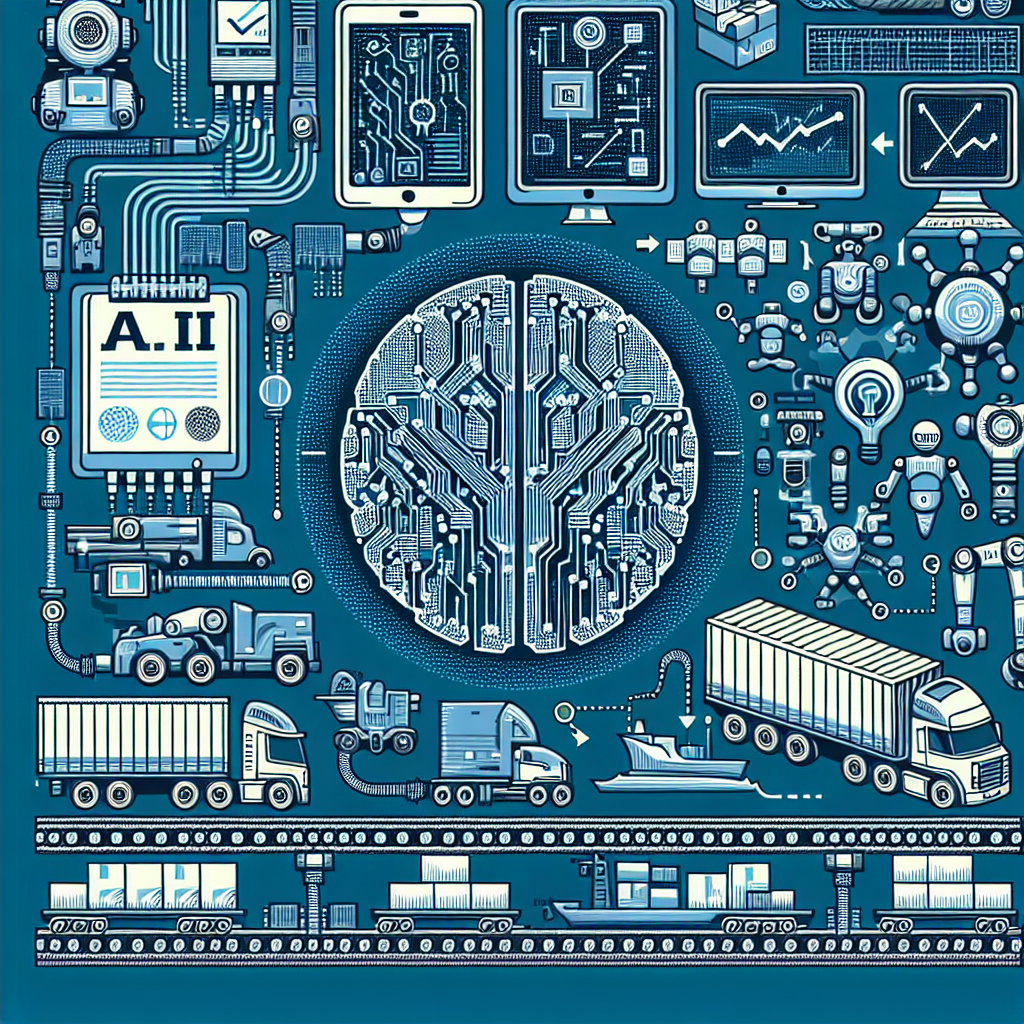Artificial Intelligence (AI) is revolutionizing the way businesses operate, and one area where its impact is particularly significant is supply chain management. By leveraging AI technologies, companies can optimize their logistics processes, increase efficiency, and reduce costs. In this article, we will explore how AI is being deployed in supply chain management to improve logistics and drive business success.
Improving Forecasting and Planning
One of the key benefits of AI in supply chain management is its ability to improve forecasting and planning processes. AI algorithms can analyze large volumes of data from various sources, such as historical sales data, market trends, and weather patterns, to predict demand more accurately. This allows companies to optimize their inventory levels, reduce stockouts, and minimize excess inventory.
AI-powered forecasting and planning tools can also help companies better understand their customers’ preferences and behavior, enabling them to tailor their product offerings and marketing strategies accordingly. By accurately predicting demand and aligning production and inventory levels with customer needs, companies can reduce waste and improve customer satisfaction.
Enhancing Inventory Management
AI can also be used to optimize inventory management processes. AI-powered algorithms can analyze real-time data on inventory levels, sales trends, and supplier performance to identify opportunities for improving inventory turnover and reducing carrying costs. By identifying patterns and trends in inventory data, AI can help companies make more informed decisions about when to replenish stock, how much to order, and where to store inventory to minimize costs and maximize efficiency.
AI can also help companies better manage their supply chain risk by providing early warning alerts about potential disruptions, such as supplier delays or transportation issues. By proactively identifying and addressing risks, companies can minimize the impact of disruptions on their operations and maintain continuity in their supply chains.
Optimizing Transportation and Logistics
AI is also being used to optimize transportation and logistics processes. AI-powered algorithms can analyze data on shipping routes, transportation modes, and carrier performance to identify opportunities for improving efficiency and reducing costs. By optimizing routing and scheduling decisions, companies can minimize transportation costs, reduce delivery times, and improve customer service.
AI can also help companies better track and monitor their shipments in real time, providing visibility into the status and location of goods throughout the supply chain. This allows companies to proactively address issues such as delays, damaged goods, or lost shipments, and ensure that products are delivered on time and in good condition.
FAQs
Q: How can AI help companies improve forecasting accuracy in supply chain management?
A: AI can improve forecasting accuracy by analyzing large volumes of data from various sources, such as historical sales data, market trends, and weather patterns, to predict demand more accurately. By leveraging AI algorithms, companies can optimize their inventory levels, reduce stockouts, and minimize excess inventory.
Q: How can AI optimize inventory management processes?
A: AI-powered algorithms can analyze real-time data on inventory levels, sales trends, and supplier performance to identify opportunities for improving inventory turnover and reducing carrying costs. By identifying patterns and trends in inventory data, AI can help companies make more informed decisions about when to replenish stock, how much to order, and where to store inventory to minimize costs and maximize efficiency.
Q: How can AI improve transportation and logistics processes?
A: AI can optimize transportation and logistics processes by analyzing data on shipping routes, transportation modes, and carrier performance to identify opportunities for improving efficiency and reducing costs. By optimizing routing and scheduling decisions, companies can minimize transportation costs, reduce delivery times, and improve customer service.
In conclusion, AI deployment in supply chain management is transforming the way companies operate, enabling them to optimize their logistics processes, reduce costs, and improve customer satisfaction. By leveraging AI technologies to improve forecasting and planning, enhance inventory management, and optimize transportation and logistics, companies can gain a competitive edge in today’s fast-paced business environment. As AI continues to evolve and become more sophisticated, its impact on supply chain management is only expected to grow, driving innovation and efficiency across the industry.

